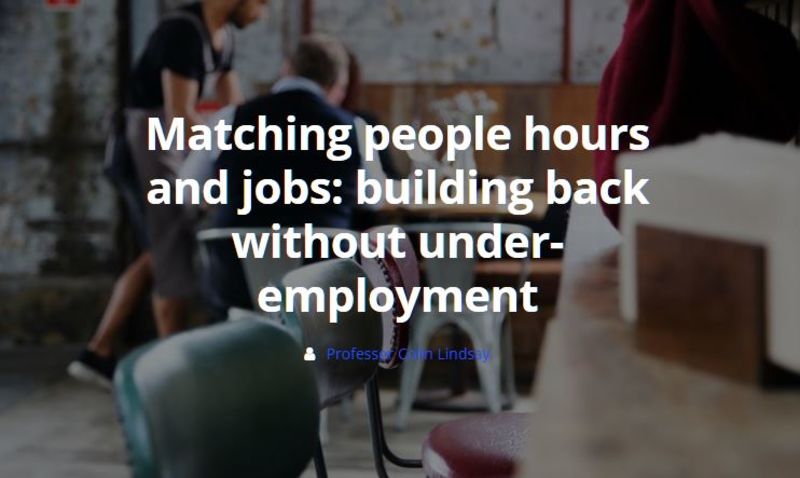Seven tips to beat imposter syndrome
NatWest Business Builder: Understanding your mindset

Feeling like a fraud as founder can be crippling, so here’s how you can tackle the dreaded imposter syndrome.
According to a survey published last month, the Microbusiness Index, a third (33%) of female micro-business owners in Scotland doubt their achievements.
Across the whole of the UK, around two thirds of SMEs say they have suffered from imposter syndrome and a fear that they’re going to be exposed as a fraud, or so found a 2017 study carried out by AXA Direct. Furthermore, women are more likely to admit to feeling like an imposter – 74% compared with 58% of men – and 44% of business owners say the self-doubt they’re plagued by is intense enough to be called a daily companion.
Suffering from imposter syndrome is often exacerbated by the fact that business owners may not have anyone to speak to about their concerns. Here, SME owners share their experiences and advice.
1. Age is just a number
Rachael Dunseath is the founder of Myroo, a plant-based skincare brand for sensitive and allergic skin. She launched the company just over two years ago, having previously had a successful career in financial services marketing.
“I knew it was a great idea – my research showed that the market needed these products – but I was so unsure about taking the leap,” she says. “My imposter syndrome hit its peak when I landed a place on an accelerator programme. I was surrounded by younger, more dynamic entrepreneurs, who were taking risks, being brave and hustling.”
While Dunseath is in her early 40s, many of her fellow entrants on the programme were in their 20s. Over time, Dunseath has found that a coping strategy has been to forget about her age and focus on what she wants to achieve instead.
2. Remember: Rome wasn’t built in a day
A lack of skills particular to your business can seem daunting. For Nikki Hollier, owner of Border in a Box, a ready-made garden border template kit, it was her perceived lack of plant knowledge and general horticultural skills that she believed was holding her back.
“I worked in corporate IT for two decades and recently retrained as a garden designer, so I’m always concerned about not being good enough,” she says. “I’ve learnt to deal with it by reminding myself that Rome wasn’t built in a day.”
What this means in practice is focusing on improving the skills needed to make the business a success and, in time, you’ll find that people will start to take you seriously, explains Hollier.
3. Break down daunting tasks
“I always think of it [imposter sydrome] through the lens of the common mountain analogy,” says Callum Hemsley, co-founder and CEO of Eola, a platform and marketplace for adventure sports and outdoor activity centres.
In the analogy, the mountain is a big task that needs to be navigated and overcome to reach a destination or end goal. Hemsley says that if a particular task is too daunting and is heightening your imposter syndrome, then it’s helpful to break the task down into manageable chunks.
“Doing this reduces the feeling that the whole cannot be accomplished and makes your targets seem within your capabilities,” he says.
4. Enter awards
Dunseath and Hollier are in agreement that entering awards can not only help your business to gain recognition, but also give you confirmation that you’re doing a great job.
““The company had won awards before, but I’d managed to explain those away. This was a huge, national win, though. Even I couldn’t take the shine off that”
Rachael Dunseath, founder, Myroo
“I won Micro Business Entrepreneur of the Year at the 2016 Great British Entrepreneur Awards,” says Dunseath. “The company had won awards before, but I’d managed to explain those away by telling people that not many others had entered. This was a huge, high-profile national win, though. Even I couldn’t fully take the shine off that.”
While losing out on an award might feel demoralising, it shouldn’t be seen as a setback. Instead, you should use it as an opportunity to enter more awards – to seek the recognition you believe your business deserves, argues Hollier.
5. Don’t be afraid to market your business
Helen Campbell, a business mentor and PR coach to SMEs, says that one thing is clear from her experience of dealing with clients: many business owners and founders tend to be reluctant to promote themselves.
“A lot of them are in a loop where they feel awkward about self-promotion, but if they don’t market themselves they bring in little-to-no work, which then worsens the imposter syndrome,” says Campbell. “In some cases, this lack of promotion will lead to the business failing. It’s important to remember that marketing your business is not boasting. Not showing off your skills and expertise, however, can stop you from reaching your potential.”
Campbell’s advice is to find your own authentic style and a way of promoting yourself that feels right for you, amplifies your talent and aligns with your company’s values.
6. There will always be doubters
Regardless of success, there will likely always be those who’ll doubt you.
“It’s best to avoid these people, as they can bring your confidence down quickly,” says Hollier. “But while some are very mean-spirited, equally, there are some who are absolutely wonderful, so make sure you surround yourself with them.”
7. Ask yourself: what’s the worst that could happen?
In the two years it’s been running, Myroo has grown its team and its products are stocked up and down the country, including in stores of fashion chain Anthropologie. Myroo is also about to announce a significant international account.
“I do still battle the imposter demons, but I’m getting better at knowing how to handle it,” says Dunseath. “And I now realise that failure can be a good thing as long as you learn from it. My mantra is: ‘What’s the worst that could happen?’ The reality is usually not as bad as you think.”
Further Reading
- SME Tools: maintaining focus
- Management strategies: overcoming imposter syndrome
- The five traits of success
We have a thriving and diverse community of thousands of entrepreneurs from multiple sectors, backgrounds and skill sets helping you to connect with the right people at the right time. No matter whether you’re looking to upskill, get feedback, engage with new people or simply observe, there’s something for everyone.
‘Want to learn more? Register for NatWest Business Builder to view all of their business development tools. Click HERE‘





















